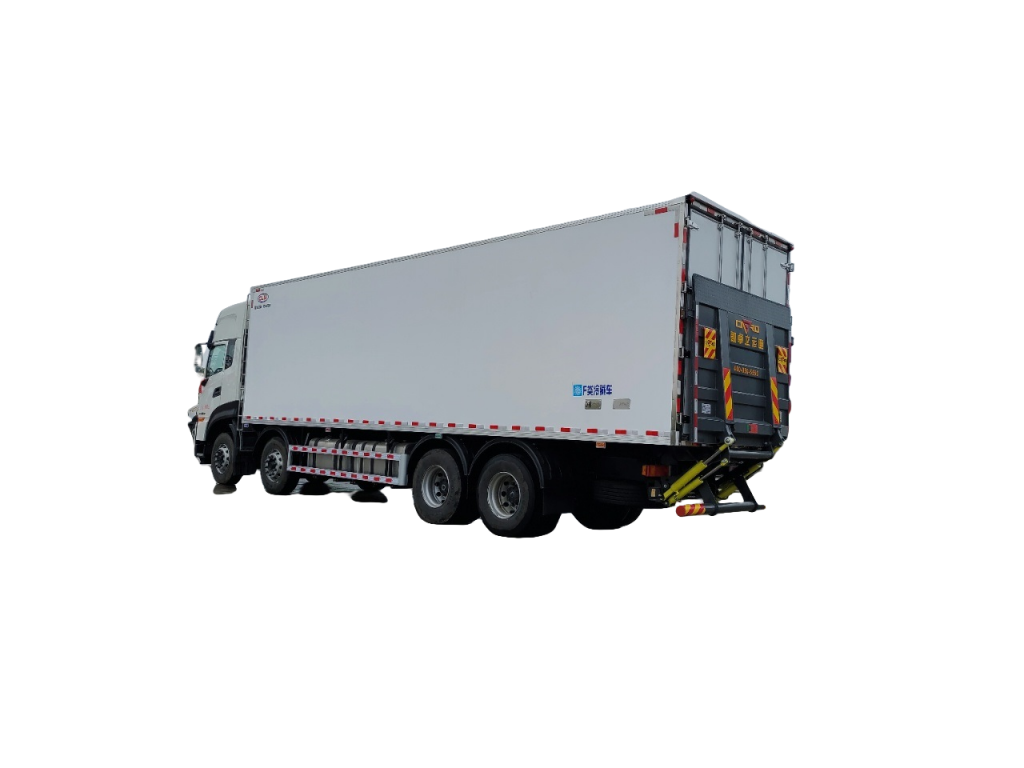Maximizing Work Truck Fuel Efficiency Strategies for Cost-Effective Operation
Introduction
Work trucks are essential vehicles for various industries, including construction, landscaping, delivery services, and utility maintenance. These trucks are relied upon for their capability to transport heavy loads and equipment to job sites efficiently. However, with the rising costs of fuel and increasing environmental concerns, optimizing work truck fuel efficiency has become a priority for businesses looking to reduce operating expenses and minimize their carbon footprint.
In this comprehensive guide, we will explore the importance of work truck fuel efficiency, the factors influencing fuel consumption in these vehicles, and strategies that businesses can implement to enhance fuel efficiency and achieve cost savings.
Understanding Work Truck Fuel Efficiency
Work trucks come in various shapes and sizes, from compact pickups to heavy-duty vehicles designed to tackle rugged terrains and heavy payloads. Regardless of their size and capacity, all work trucks consume fuel to operate, making fuel efficiency a critical aspect of their performance.
Fuel efficiency refers to the amount of energy a vehicle can convert from fuel into propulsion to travel a certain distance. In the context of work trucks, fuel efficiency directly impacts operating costs, environmental impact, and overall productivity. A fuel-efficient work truck requires less fuel to perform the same tasks as a less efficient vehicle, resulting in cost savings and reduced emissions.
Factors Influencing Fuel Efficiency in Work Trucks
Several factors influence the fuel efficiency of work trucks, and understanding these variables is essential for optimizing performance and reducing fuel consumption. Some of the key factors affecting work truck fuel efficiency include:
1. Vehicle Weight: The weight of a work truck and its payload directly impacts fuel consumption. Heavier vehicles require more energy to accelerate and maintain speed, leading to increased fuel consumption. By minimizing unnecessary weight and optimizing payload distribution, businesses can improve fuel efficiency.
2. Aerodynamics: The design of a work truck plays a significant role in its aerodynamic efficiency. Vehicles with sleek, streamlined shapes experience less air resistance, resulting in improved fuel efficiency. Implementing aerodynamic enhancements, such as side skirts and roof fairings, can reduce drag and enhance fuel economy.
3. Engine Efficiency: The engine is the heart of a work truck, and its efficiency directly affects fuel consumption. Modern engines equipped with advanced technologies, such as turbocharging and direct injection, are more fuel-efficient than older models. Regular maintenance and tuning of the engine can also improve fuel efficiency.
4. Driving Behavior: Driver behavior has a significant impact on fuel efficiency. Aggressive driving, excessive idling, and speeding can increase fuel consumption significantly. Encouraging drivers to adopt fuel-efficient driving practices, such as smooth acceleration, maintaining steady speeds, and avoiding sudden stops, can help save fuel.
5. Route Planning: Efficient route planning can help minimize fuel consumption by reducing unnecessary mileage and avoiding traffic congestion. Utilizing GPS navigation systems and real-time traffic information can help drivers choose the most fuel-efficient routes to their destinations.
6. Tire Maintenance: Proper tire inflation and maintenance are essential for optimal fuel efficiency. Underinflated tires increase rolling resistance, leading to higher fuel consumption. Regularly checking tire pressure and ensuring proper alignment can improve fuel efficiency and extend tire life.
Strategies for Improving Work Truck Fuel Efficiency
To enhance work truck fuel efficiency and achieve cost savings, businesses can implement various strategies aimed at optimizing performance and reducing fuel consumption. Some effective strategies include:
1. Vehicle Selection: When purchasing new work trucks, businesses should consider fuel efficiency as a key criterion. Choosing vehicles with efficient engines, aerodynamic designs, and lightweight materials can help reduce fuel consumption over the vehicle's lifespan.
2. Maintenance: Regular maintenance is crucial for ensuring optimal fuel efficiency in work trucks. Scheduled tune-ups, oil changes, and filter replacements can help keep the engine running smoothly and improve fuel economy. Additionally, maintaining proper tire pressure and alignment is essential for minimizing fuel consumption.
3. Driver Training: Providing driver training programs focused on fuel-efficient driving practices can help improve work truck fuel efficiency. Educating drivers on the importance of smooth acceleration, steady speeds, and proactive route planning can lead to significant fuel savings.
4. Telematics Systems: Implementing telematics systems in work trucks can provide valuable insights into vehicle performance and driver behavior. These systems can track fuel consumption, idling time, and route efficiency, allowing businesses to identify areas for improvement and optimize fuel efficiency.
5. Aerodynamic Enhancements: Installing aerodynamic enhancements, such as side skirts, cab extenders, and roof fairings, can reduce drag and improve fuel efficiency in work trucks. These modifications help streamline airflow around the vehicle, reducing resistance and enhancing performance.
6. Idle Reduction Technologies: Idling consumes fuel without providing any tangible benefits, leading to unnecessary fuel wastage. Implementing idle reduction technologies, such as automatic engine shutdown systems and auxiliary power units, can help minimize fuel consumption during idle periods.
7. https://www.worktruckmaker.com/a-deep-dive-into-special-vehicles-everything-you-need-to-know/ : Exploring alternative fuel options, such as biodiesel, compressed natural gas (CNG), or electric powertrains, can help reduce reliance on traditional gasoline and diesel fuels. Switching to alternative fuels can lower operating costs and reduce greenhouse gas emissions.
8. Data Analysis and Optimization: Utilizing data analysis tools to track fuel consumption, vehicle performance, and driver behavior can help businesses identify inefficiencies and opportunities for improvement. By analyzing real-time data, businesses can optimize routes, monitor fuel usage, and make informed decisions to enhance fuel efficiency.
Conclusion
Maximizing work truck fuel efficiency is essential for businesses seeking to reduce operating costs, enhance sustainability, and improve overall productivity. By understanding the factors influencing fuel consumption in work trucks and implementing effective strategies to optimize performance, businesses can achieve significant cost savings and environmental benefits.

From selecting fuel-efficient vehicles to promoting driver training and implementing aerodynamic enhancements, there are various approaches businesses can take to improve work truck fuel efficiency. By prioritizing fuel efficiency and adopting a holistic approach to vehicle operation, businesses can reduce their carbon footprint, enhance competitiveness, and contribute to a more sustainable future.